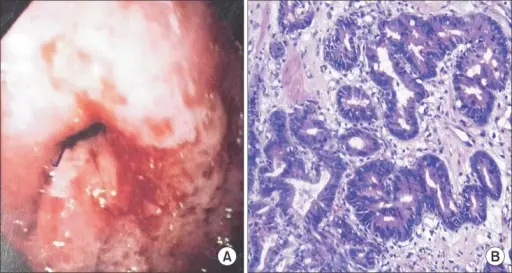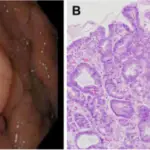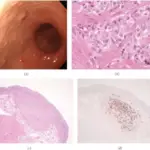Gastric adenocarcinoma is a malignant epithelial tumor, originating from glandular epithelium of the gastric mucosa.
What is the Pathology of Gastric Adenocarcinoma?
The pathology of gastric adenocarcinoma is:
-Etiology: The cause of gastric adenocarcinoma is multifactorial, more than 80% of cases have been attributed to H. pylori infection. In addition, diet, lifestyle, genetic, socioeconomic and other factors contribute to gastric carcinogenesis.
-Genes involved: E-cadherin mutation.
-Pathogenesis: The sequence of events that lead to gastric adenocarcinoma are: nonmalignant cells involved in the tumor microenvironment play indispensable roles throughout GC pathogenesis. Generally, nonmalignant cells participate in various mechanisms related to GC development, such as stromal interactions, angiogenesis, and some immune responses.
-Histology: The histology associated with gastric adenocarcinoma shows sharply demarcated advancing margins composed of irregular nests or sheets of polygonal tumor cells.
How does Gastric Adenocarcinoma Present?
Patients with gastric adenocarcinoma typically in males as compared to females mostly present at the age range of 50 to 70 years or older. The symptoms, features, and clinical findings associated with gastric adenocarcinoma include pain in the belly, nausea, vomiting, weight loss, weakness, dark stools color, jaundice, and low red blood cells.
How is Gastric Adenocarcinoma Diagnosed?
Gastric adenocarcinoma is diagnosed by blood tests, esophagogastroduodenoscopy, upper gastrointestinal endoscopy, and biopsy.
How is Gastric Adenocarcinoma Treated?
Gastric adenocarcinoma is treated by endoscopic resection, surgery, and chemotherapy.
What is the Prognosis of Gastric Adenocarcinoma?
The prognosis of gastric adenocarcinoma is poor. Long term survival of advanced gastric adenocarcinoma is poor with therapy and even worse without treatment.



